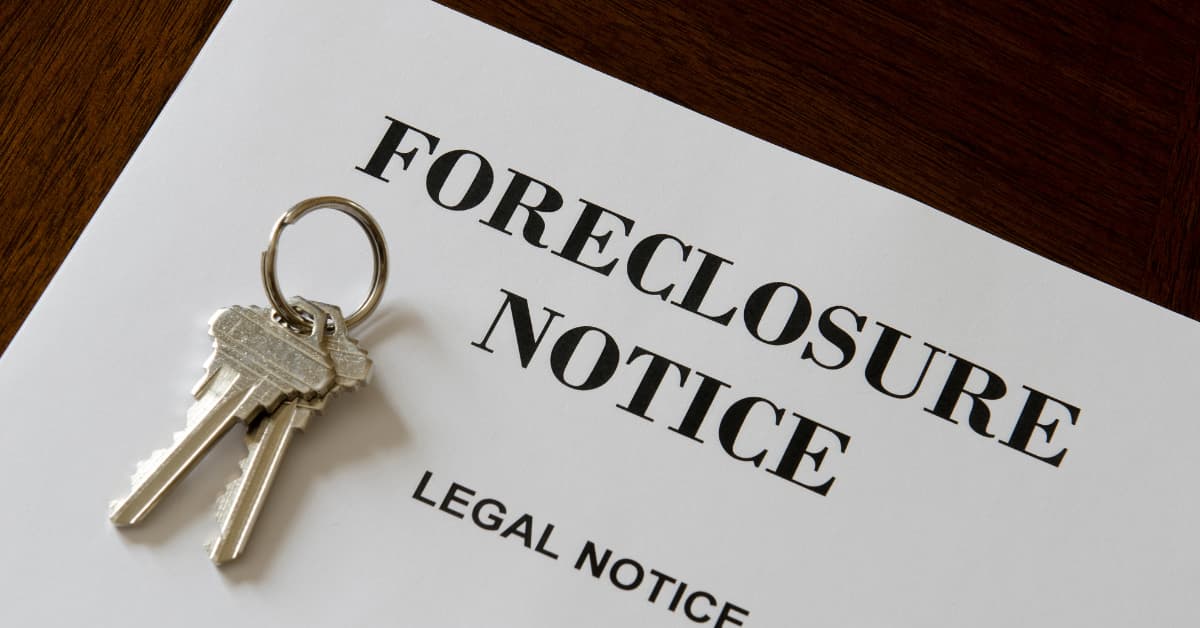Stop. Stop believing your rights disappear the moment foreclosure completes in Texas.
As someone who has guided hundreds of Texas homeowners through post-foreclosure rights and challenges over the past 15 years, I’ve seen too many people surrender rights they never knew they had. The foreclosure process doesn’t end your legal protections – in many cases, it’s just the beginning of new opportunities to recover what you’ve lost.
Texas homeowners facing post-foreclosure situations have specific rights that extend well beyond the sale date. These include redemption periods, surplus fund claims, wrongful foreclosure challenges, and deficiency judgment protections. Understanding these rights can mean the difference between walking away empty-handed and recovering thousands of dollars. Partnering with an experienced foreclosure attorney can be instrumental in asserting these rights effectively, navigating complex legal processes, and maximizing potential recoveries.
Here’s what most people miss: Texas foreclosure law provides multiple safety nets for former homeowners, but these protections come with strict deadlines and specific procedures. Miss these windows, and you’ll lose valuable opportunities to recover funds or challenge the foreclosure entirely.
Understanding Your Post-Foreclosure Timeline in Texas
The moment your Texas home sells at foreclosure, a complex legal timeline begins. Unlike many states, Texas operates under a non-judicial foreclosure system, which means most foreclosures happen without court involvement. This creates unique post-foreclosure rights and responsibilities that many homeowners don’t understand.
Critical Deadlines You Cannot Miss
Immediate Post-Sale Period (0-10 days): You retain certain occupancy rights and must receive proper notice of surplus funds if the property is sold for more than you owe. During this critical window, the trustee must account for all sale proceeds and notify you of any excess funds.
30-Day Challenge Window: Texas gives you 30 days from the foreclosure sale to challenge the foreclosure in court if you believe it was conducted improperly. This isn’t a redemption right – it’s a chance to prove the foreclosure violated Texas Property Code requirements.
How Surplus Fund Claims Work
Surplus Fund Claim Period: If your property is sold for more than the total debt, you have the right to claim the surplus. However, other creditors may also have claims, and the distribution process follows specific legal priorities.
I’ve seen cases where homeowners lost tens of thousands in surplus funds simply because they didn’t know to file a claim within the required timeframe. One client recovered $47,000 in surplus funds after her Dallas home sold for significantly more than her mortgage balance.
Your Rights to Surplus Funds After Foreclosure
When your Texas home sells at foreclosure for more than you owed, you don’t automatically receive the extra money. The law requires you to actively claim these surplus funds, and the process involves specific legal steps.
Understanding Payment Priority Rules
Who Gets Paid First: Texas follows a strict priority system for surplus fund distribution. The foreclosing lender gets paid first, followed by other valid lienholders in order of their recorded priority. Junior lienholders, judgment creditors, and tax authorities may all have claims ahead of you.
Filing Your Surplus Fund Claim
Your Claim Process: To recover surplus funds, you must file a formal claim with the trustee or the court, depending on how the foreclosure was conducted. This claim must include proof of your ownership and verification that you’re entitled to the remaining funds after all valid liens are satisfied.
Documentation Requirements: Successfully claiming surplus funds requires specific documentation – proof of identity, evidence of your ownership interest, and often a title search to verify the lien priority order. Missing or incomplete documentation routinely delays payments for months.
Common Mistakes That Cost Money
The biggest mistake I see homeowners make? Assuming the surplus money will automatically come to them. Texas law places the burden on you to claim these funds, and unclaimed surplus money can eventually become property of the state.
Last year, I helped a client recover $23,000 in surplus funds after her Austin property sold at foreclosure. The key was acting quickly and providing complete documentation to establish her claim priority over other creditors who had also filed claims.
Challenging Wrongful Foreclosure in Texas
Not every foreclosure in Texas follows proper legal procedures. When lenders or trustees violate Texas foreclosure requirements, you may have grounds to challenge the sale and potentially recover your property or receive monetary damages.
Identifying Foreclosure Violations
Common Foreclosure Violations: Texas Property Code Section 51.002 requires specific notice procedures, proper posting requirements, and adherence to sale conduct rules. Violations include inadequate notice periods, improper posting locations, conducting sales at wrong times or places, and failing to follow reinstatement procedures.
The Critical 30-Day Challenge Window
The 30-Day Challenge Rule: Texas gives you exactly 30 days from the foreclosure sale date to file a lawsuit challenging the foreclosure. This deadline is absolute – courts cannot extend it for any reason. Your challenge must allege specific violations of Texas foreclosure statutes, not just general unfairness.
What You Can Recover: Successful wrongful foreclosure claims can result in setting aside the sale, monetary damages, or in some cases, getting your property back. However, you must prove both that violations occurred and that these violations materially affected the foreclosure outcome.
Building Your Evidence Case
I recently represented a homeowner whose lender failed to provide proper notice before acceleration. The court found this violated Texas Property Code requirements and awarded damages equal to the property’s fair market value minus the loan balance.
Evidence Requirements: Challenging wrongful foreclosure requires documented proof of procedural violations. This might include postal records showing inadequate notice, photographs proving improper posting, or witness testimony about sale conduct violations.
The key thing most people miss: even minor procedural violations can invalidate a foreclosure if they affected the sale outcome. But you must act within that 30-day window, and you need experienced legal counsel to navigate these complex requirements.
Deficiency Judgment Protections for Texas Homeowners
After foreclosure, many Texas homeowners worry about deficiency judgments – claims for the remaining loan balance if the foreclosure sale didn’t cover the full debt. Texas law provides important protections, but they depend on your specific circumstances.
Homestead vs. Investment Property Rules
Homestead Protection: If the foreclosed property was your homestead, Texas provides strong protection against deficiency judgments. Under Texas Property Code Section 51.003, lenders generally cannot pursue deficiency judgments against homestead properties unless specific exceptions apply.
Non-Homestead Properties: Investment properties and second homes don’t receive the same deficiency protection. For these properties, lenders can seek deficiency judgments, but they must follow specific legal procedures and timing requirements.
Fair Market Value Elections Save Money
Fair Market Value Elections: Texas allows you to demand that deficiency calculations be based on the property’s fair market value rather than the foreclosure sale price. This can significantly reduce or eliminate deficiency liability when properties sell below market value at foreclosure.
Here’s what happened with one of my clients: His rental property was foreclosed for $180,000, but he owed $220,000. Instead of facing a $40,000 deficiency, we demanded a fair market value election. An appraisal showed the property was worth $215,000, reducing his deficiency to just $5,000.
Timing Rules That Protect You
Anti-Deficiency Timing Rules: Lenders must file deficiency lawsuits within specific timeframes under the Texas Civil Practice and Remedies Code. Missing these deadlines eliminates their right to pursue deficiency judgments entirely.
The protection most homeowners don’t know about: Texas requires lenders to give you written notice of their intent to seek a deficiency judgment and your right to demand fair market value treatment. This notice must include specific legal language, and violations can defeat deficiency claims.
Protecting Your Credit and Financial Future
Post-foreclosure financial recovery requires strategic planning to minimize long-term credit damage and position yourself for future homeownership. Texas homeowners have specific tools and protections that can accelerate this recovery process.
Credit Repair Strategies
Credit Reporting Disputes: Texas homeowners can challenge inaccurate foreclosure reporting on credit reports. If the foreclosure process contained violations or if the reporting contains errors, you can demand corrections that may improve your credit scores.
Deed in Lieu Alternatives: Even after foreclosure starts, some Texas homeowners can negotiate deed-in-lieu arrangements that may be less damaging to credit than completed foreclosures. These agreements require careful legal review to ensure they properly release all liability.
Planning Your Return to Homeownership
Future Homeownership Planning: Texas doesn’t impose waiting periods for post-foreclosure home purchases beyond federal lending requirements. Understanding these timelines helps you plan your financial recovery and return to homeownership.
I’ve guided clients through credit recovery strategies that reduced their post-foreclosure waiting periods and improved their mortgage qualification prospects. The key is understanding which debts to prioritize and how to document any foreclosure process violations that might support credit disputes.
Asset Protection During Recovery
Income Protection Strategies: Texas provides strong asset protection laws that can help preserve your financial recovery. Understanding homestead exemptions, retirement account protections, and other Texas-specific protections helps you rebuild wealth while protecting it from creditors.
Tax Implications: Foreclosure can create tax consequences, including potential cancellation of debt income. Texas homeowners may qualify for various exclusions, but these require proper documentation and timely filing.
When to Contact a Texas Foreclosure Attorney
Navigating post-foreclosure rights in Texas requires understanding complex legal deadlines, documentation requirements, and procedural rules. Missing critical windows or failing to preserve your rights can cost you thousands of dollars and eliminate valuable legal protections.
Situations Requiring Immediate Legal Action
Immediate Legal Review Situations: Contact an attorney immediately if you believe the foreclosure process contained violations, if you’re entitled to surplus funds, or if you’re facing deficiency judgment claims. The 30-day challenge deadline doesn’t allow for delayed action.
Surplus Fund Recovery: While you can technically claim surplus funds without an attorney, complex cases involving multiple creditors or title issues benefit from legal representation. An experienced attorney can navigate creditor priorities and ensure you receive maximum recovery.
Defending Against Deficiency Claims
Deficiency Defense: If you’re facing deficiency judgment claims, especially on non-homestead properties, legal representation can often reduce or eliminate these liabilities through procedural defenses or fair market value elections.
At Kelly Legal Group, we’ve recovered millions in surplus funds for Texas homeowners and successfully defended against wrongful deficiency claims. Our approach focuses on identifying all available post-foreclosure rights and pursuing maximum recovery within required legal deadlines.
The Value of Professional Guidance
Free Consultation Value: Most post-foreclosure legal issues involve strict deadlines and complex procedural requirements. A consultation can identify time-sensitive opportunities and help you understand the potential value of pursuing your rights.
Don’t let post-foreclosure confusion cost you money or legal protections you’re entitled to under Texas law. The rights exist, but they require prompt action and proper legal procedures to preserve them.
Your post-foreclosure rights in Texas are real, valuable, and time-sensitive. Whether you’re entitled to surplus funds, have grounds to challenge the foreclosure, or need protection from deficiency claims, understanding these rights is the first step toward financial recovery.
Take action today. Contact Kelly Legal Group today for a consultation about your specific post-foreclosure situation. We’ll review your case, identify available rights and remedies, and help you recover everything you’re entitled to under Texas law.






